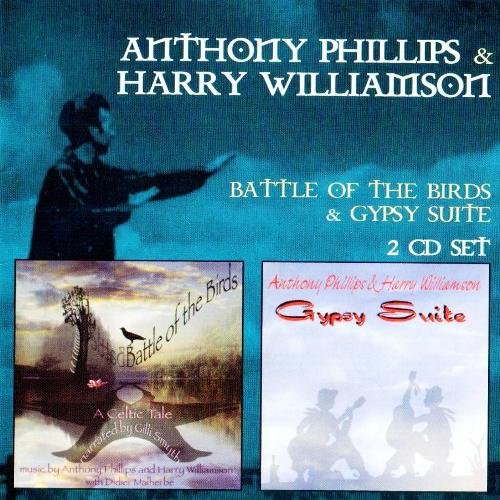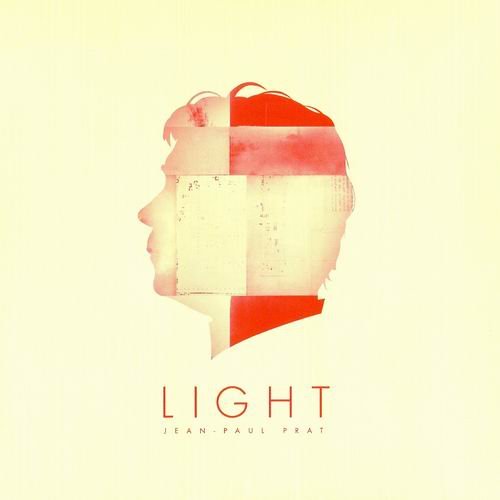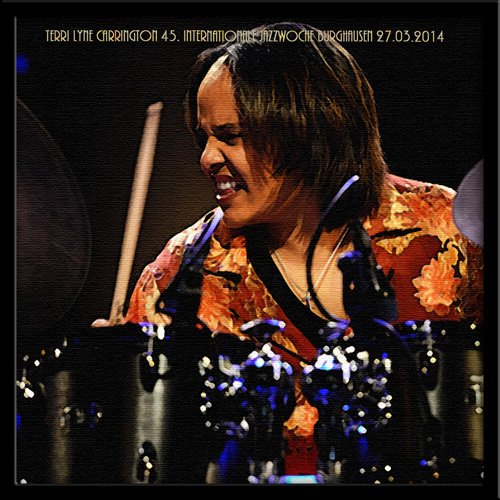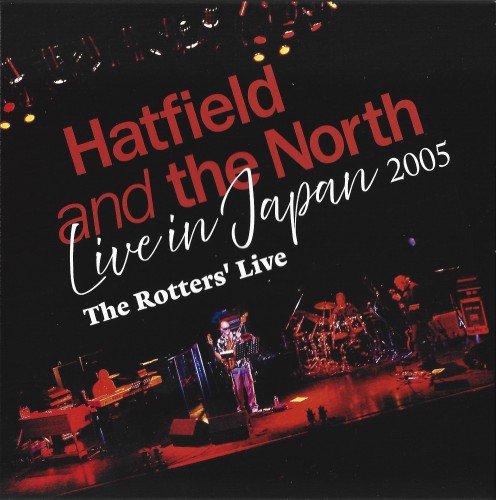Anthony Phillips & Harry Williamson - Battle Of The Birds & Gypsy Suite (2010)

Artist: Anthony Phillips & Harry Williamson
Title: Battle Of The Birds & Gypsy Suite
Year Of Release: 2010
Label: Floating World Records
Genre: Acoustic, Rock, Folk
Quality: FLAC (image + .cue, log, artwork)
Total Time: 1:43:22
Total Size: 516 MB
WebSite: Album Preview
Tracklist:Title: Battle Of The Birds & Gypsy Suite
Year Of Release: 2010
Label: Floating World Records
Genre: Acoustic, Rock, Folk
Quality: FLAC (image + .cue, log, artwork)
Total Time: 1:43:22
Total Size: 516 MB
WebSite: Album Preview
CD 1
Battle Of The Birds
1. The Wren And The Raven (2:52)
2. Raven Flight (3:08)
3. The Magic Bundle (4:51)
4. The Promise (3:06)
5. The First Test (3:33)
6. The Second Test (4:26)
7. Wed The Giants Daughter (2:34)
8. The First Spell (3:54)
9. The Last Spell (2:22)
10. From Rags To Riches (6:26)
11. Auburn Mary (3:08)
12. The Choice (2:14)
13. Sombre (1:19)
14. Flight (3:09)
15. Twilight (3:48)
CD 2
Gypsy Suite
1. Movement I: First Light (7:58)
2. Movement II: Siesta (5:08)
3. Movement III: Evening Circle (5:41)
4. Movement IV: The Crystal Ball (9:59)
Tarka
5. Movement I: The Early Years (8:41)
6. Movement IIa - Streams River And Salmon Hunting (6:38)
7. Movement IIb - Dunes & Estuary (6:34)
8. Movement IIc - Moonfield - Postscript (1:10)
Anthony Phillips was one of the founding members of Genesis, having attended the Charterhouse School in Surrey with Peter Gabriel, Tony Banks, and Michael Rutherford. Phillips and Rutherford (who had played together in another band before linking up with Gabriel and Banks), were the principal composing members of Genesis during their formative years, right into their first recording venture on English Decca ("Silent Sun," etc.) under the aegis of Jonathan King. Much of Phillips' and Rutherford's music was too subtle and introspective to work for the fledgling band on-stage, and eventually composition became more of a shared effort. By the time the group cut its second album, Trespass, however, Phillips had receded into the background, propelled by a crippling onset of stage fright that forced him out of the lineup following the album's release. His influence, ironically, was felt very strongly on their subsequent breakthrough third album, Nursery Cryme, the title track was the band's first number to attract a wide audience in progressive rock circles for its introduction and opening minute, which used material that Phillips had written and recorded (as a demo) as early as 1969.
The Geese & the Ghost Little more was heard from Anthony Phillips until 1977, when he released his first solo album, The Geese and the Ghost, followed by Wise After the Event a year later, and then a collection of early demo recordings, Private Parts and Pieces, also issued in 1978. Phillips has re-emerged periodically, working in a style that is much closer to the classically influenced original Genesis sound than to the work of the current version of the group. He retains a cult of fans, similar in certain respects to Peter Banks of Yes (another guitar player who quit an art-rock band at a critical early juncture in their history), but recording more frequently. He also writes a considerable amount of music for television and movies, and remains a guitarist of supreme skill and confidence, steeped in classical, pre-Baroque, and folk influences, able to record entire albums featuring only his acoustic instrument. Phillips' skills on the keyboard, principally synthesizer and Mellotron, are more limited, and were never exploited within a group context, but his studio recordings reveal a distinctive character to his compositions on those instruments as well. -- Bruce Eder
The Geese & the Ghost Little more was heard from Anthony Phillips until 1977, when he released his first solo album, The Geese and the Ghost, followed by Wise After the Event a year later, and then a collection of early demo recordings, Private Parts and Pieces, also issued in 1978. Phillips has re-emerged periodically, working in a style that is much closer to the classically influenced original Genesis sound than to the work of the current version of the group. He retains a cult of fans, similar in certain respects to Peter Banks of Yes (another guitar player who quit an art-rock band at a critical early juncture in their history), but recording more frequently. He also writes a considerable amount of music for television and movies, and remains a guitarist of supreme skill and confidence, steeped in classical, pre-Baroque, and folk influences, able to record entire albums featuring only his acoustic instrument. Phillips' skills on the keyboard, principally synthesizer and Mellotron, are more limited, and were never exploited within a group context, but his studio recordings reveal a distinctive character to his compositions on those instruments as well. -- Bruce Eder
![Emilie-Claire Barlow - La plus belle saison (2026) [Hi-Res] Emilie-Claire Barlow - La plus belle saison (2026) [Hi-Res]](https://www.dibpic.com/uploads/posts/2026-02/1770314882_cover.jpg)


![Rok Zalokar - Pieces for Collective Change (2025) [Hi-Res] Rok Zalokar - Pieces for Collective Change (2025) [Hi-Res]](https://img.israbox.com/img/2026-02/09/bdwqrbl1honjxisedtld75o3t.jpg)
![Joe Lovano, Winston Salem Symphony & Michelle Merrill - a raft, the sky, the wild sea (2026) [Hi-Res] Joe Lovano, Winston Salem Symphony & Michelle Merrill - a raft, the sky, the wild sea (2026) [Hi-Res]](https://www.dibpic.com/uploads/posts/2026-02/1770314335_cover.jpg)


![Malene Mortensen & Christian Sands - Malene & Christian (2026) [Hi-Res] Malene Mortensen & Christian Sands - Malene & Christian (2026) [Hi-Res]](https://www.dibpic.com/uploads/posts/2026-02/1770214038_ye95svxsd11r2_600.jpg)
![Batsumi - Batsumi (2021) [Hi-Res] Batsumi - Batsumi (2021) [Hi-Res]](https://www.dibpic.com/uploads/posts/2021-06/1623332057_1280x1280.jpg)